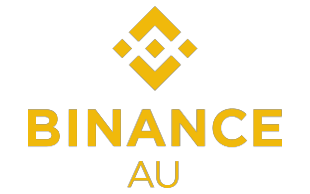
- Australia's best crypto exchanges
- Best overall exchange
- Best for long-term investors
- Best for beginners
- Best local exchange
- Best for emerging altcoins
- Best for copy trading
- Best for value
- Best for app users
- Best for altcoins and for crypto self-managed super funds
- Compare crypto exchanges in Australia
- Top 5 crypto exchanges for customer satisfaction
- Which crypto exchanges accept AUD?
- Which crypto exchange has the lowest fees in Australia?
- What if my bank blocks bank deposits or payments to crypto exchanges?
- How to choose the best crypto exchange for you
- Risks of using a crypto exchange
- Frequently asked questions
- Sources
Australia's best crypto exchanges
- Best overall exchange: Kraken
- Best for long-term investors: Coinbase Australia
- Best for beginners: Swyftx
- Best local exchange: CoinSpot
- Best for emerging altcoins: KuCoin
- Best for copy trading: eToro Crypto
- Best for value: CoinJar
- Best for app users: Bybit
- Best for altcoins and for crypto self-managed super funds: Coinstash
How did we pick these exchanges?
We analysed more than 500 features across 25 cryptocurrency platforms in Australia to find winners across a range of categories. Awards are based on quantitative criteria which are weighted and scored for each category. We also identified exchanges that are particularly strong on individual features such as copy trading. Keep in mind that these picks are suggestions and that the exchange that is best for you will depend on your individual needs. There are other products on the market not included in our picks.
This is not an endorsement of cryptocurrency or any specific provider, service or offering. It is not a recommendation to trade or use any services.
Compare crypto exchanges in Australia
Compare other products
We currently don't have that product, but here are others to consider:
How we picked theseTop 5 crypto exchanges for customer satisfaction
The Finder Customer Satisfaction Awards ask Australians which brands and products they trust and love the most. For the crypto trading platforms customer satisfaction awards, we surveyed hundreds of Australians to rate their crypto trading platform.
| Platform | Overall satisfaction | Trustworthy/reliable |
|---|---|---|
 | ★★★★★ 4.11/5 | 91% |
 | ★★★★★ 4.08/5 | 91% |
 | ★★★★★ 4.01/5 | 91% |
 | ★★★★★ 3.9/5 | 80% |
 | ★★★★★ 3.88/5 | 82% |
Which crypto exchanges accept AUD?
The following exchanges allow you to deposit AUD or buy crypto using Australian dollars:
- CoinSpot
- Kraken
- Coinbase
- Swyftx
- Coinstash
- BTC Markets
- Independent Reserve
- CoinJar
- Cointree
- Easy Crypto
- Digital Surge
- Day1x
Which crypto exchange has the lowest fees in Australia?
You can find a breakdown of the standard maker and taker fees of the major crypto exchanges in Australia in the table below. Please note that these are the fees for buying and selling crypto on the spot market, not via an instant purchase option.
| Exchange | Maker fee | Taker fee |
|---|---|---|
| Binance | 0.10% | 0.10% |
| Coinjar | 0.10% | 0.10% |
| KuCoin | 0.10% | 0.10% |
| ByBit | 0.10% | 0.10% |
| CoinSpot | 0.01% | 0.01% |
| Kraken | 0.23% | 0.40% |
| Coinbase | 0.40% | 0.60% |
| OKX | 0.70% | 0.70% |
| Swyftx | 0.60% | 0.60% |
| BTC Markets | -0.05% | 0.20% |
| Coinstash | 0.85% | 0.85% |
| eToro | 1.00% | 1.00% |
These fees are accurate as of January 19, 2026.
Buying and selling on an exchange's spot market is normally the cheapest way to trade cryptocurrency. However, the spot market fees listed below won't necessarily apply to every cryptocurrency you want to trade. For example, BTC Markets actually charges a -0.05% maker fee on BTC trading pairs, but a 0.85% fee on AUD pairs.
What if my bank blocks bank deposits or payments to crypto exchanges?
Many of Australia's biggest banks have imposed blocks or limits on certain crypto exchanges, including the Commonwealth Bank, Westpac, NAB and ANZ.
For example, Commonwealth Bank has a $10,000 limit on deposits to crypto exchanges each month. In July 2024, HSBC also announced that it would be blocking all transactions to crypto exchanges from its customers.
Banks may also outright block any transactions to exchanges they deem disreputable or insecure, but this is often extended to larger, respected exchanges as well.
In August 2024, users reported that deposits to Kraken were being blocked by banks including ING, Westpac and Macquarie Bank.
If your bank is blocking or reversing deposits to crypto exchanges, your first move should be to contact your bank directly. Depending on their response, you may need to try a different crypto exchange or open an account with a different bank that allows deposits to that exchange.
How to choose the best crypto exchange for you
It's important to research a wide range of platforms and compare the pros and cons of each option. The best crypto exchange for you depends on what you're looking for.
Consider the following factors when comparing crypto exchanges.
-
If you're a cryptocurrency novice, getting started buying and selling coins and tokens can be complicated and confusing. On the other hand, experienced traders may want a platform with special features like advanced charting and order types as well as the option to trade on margin.
If you're a crypto-trading beginner, look for a platform with a straightforward user interface that's easy to understand from the beginning.
-
Can you deposit funds into your account via bank transfer, credit card and/or PayPal? The more payment options an exchange has, the more convenient it will generally be to use. Make sure your exchange has deposit and withdrawal options that work for you, and remember to check the fees associated with different methods.
-
First, consider the type of trades you want to place. There are exchanges available that offer the following:
- Fiat-to-crypto trading
- Crypto-to-crypto trading
- Both fiat-to-crypto and crypto-to-crypto trading
For example, if you want to buy BTC with AUD, you'll need to find a cryptocurrency broker that allows you to buy coins via bank transfer or credit card. Alternatively, if you want to exchange your BTC or ETH holdings for another cryptocurrency, you'll want a platform that offers direct crypto-to-crypto trades.
-
Consider which currencies you want to trade and which platforms list those currencies in one or more trading pairs:
- Cryptocurrencies. There are thousands of different cryptocurrencies in existence, so don't expect to find them all listed on any single platform. Major cryptos like BTC, ETH, XRP and others in the top 20 coins by market cap are listed on an extensive range of exchanges but rarer altcoins may be much harder to find.
- Fiat currencies. If you want to buy crypto with fiat currency, check which currencies the platform accepts.
-
From deposit through to trading and withdrawing funds, how much will it cost you to buy and sell crypto on each platform from start to finish? Remember to consider your payment method, the currencies you want to use and any discounts you may be entitled to when completing these calculations.
-
Are there any limits on the amount you can deposit into your account or the amount of cryptocurrency you can buy or sell per transaction or per day? Also check whether there are any restrictions on how much you can withdraw from your account.
Remember, minimum and maximum limits may apply, so check the fine print to be sure the platform is a good fit for the size of trades you want to place.
-
How can you access your trading account? Many platforms offer web browser trading only, but some also offer mobile and even desktop trading apps. If trading on the go is important to you, it's worth reading up on the user-friendliness of the platform's mobile app.
-
Is there any way you can access reduced trading fees? Are you entitled to fee discounts simply because you hold an exchange's native currency or use those tokens to pay transaction fees? Is there a tiered fee structure that rewards high-volume traders with reduced fees?
Some crypto exchange loyalty programs will even offer additional benefits, such as access to exclusive events and even a share of the platform's trading fee revenue, so this feature is well worth investigating.
-
There is no such thing as an official Bitcoin price – it's determined by whatever people are willing to pay. Compare exchange rates across a handful of different crypto exchanges and you might be surprised to find just how much they can differ from one platform to the next. The variation can be as much as 10% in some cases, which can obviously make a big difference to the success of a trade.
-
The level of liquidity on an exchange affects the ease and speed with which you can complete trades. If there's a high level of liquidity – in other words, if the exchange has a high trading volume – then trades should be completed quickly and easily.
One of the biggest benefits of trading on larger crypto exchanges is that they get enough orders to be able to match buyers and sellers without any difficulty. However, low liquidity can lead to substantial price fluctuations.
You can check crypto exchange trading volumes by looking at its order books prior to signing up.
-
If privacy is important to you when trading cryptocurrency, there are some platforms that allow you to transact anonymously. Of course, if it's too easy to create an account and start trading, consider whether there's anything to stop a platform from disappearing (hopefully not with your funds) overnight.
Many other platforms will require you to verify your account before allowing you to trade. This step is designed to ensure that the exchange meets its obligations under anti-money laundering and counter-terrorism financing (AML/CTF) regulations.
Verification requirements vary between exchanges, but you may need to provide some or all of the following:
- Your name
- Your email address and phone number
- Your address
- Proof of ID
- Proof of address
- A photo of yourself holding a signed declaration
If you need to provide a wide range of personal information, it's important to be sure you're dealing with a trusted exchange. It's also a good idea to research how long you can expect the verification process to take.
Finally, be aware that some exchanges will require you to complete additional verification tasks in order to unlock full account features and higher transaction limits.
-
How long will it take for your transaction to be completed? How soon are account withdrawals processed?
Being forced to miss out on a trading opportunity because your trading funds took too long to arrive into your exchange account can be a frustrating experience. Spending day after day waiting for a withdrawal to arrive in your bank account or crypto wallet can also be extremely stressful, so check average processing times before you register.
-
Security is a crucial factor to consider when choosing a crypto exchange. History is littered with many famous examples of exchanges being hacked and unsuspecting users falling victim to theft and fraud, so make sure you do your research into what security measures are in place to protect your funds.
Questions you should ask include the following:- Is 2-factor authentication supported?
- Are customer funds stored in online or offline wallets?
- Do I control my private key or does the exchange? If it's the latter, where and how is my private key stored?
- What level of verification is required to open an account?
- Is there 24/7 security monitoring?
- Will you receive email and SMS alerts regarding account activity?
- Does the exchange use email encryption?
- Does the exchange provide proof of reserve?
-
Though authorities around the world are starting to catch up to the rapid growth of crypto exchanges, the industry as a whole is still lightly regulated. How an exchange is regulated depends on where it is based, so do your research to find out whatever information you can about the platform operators.
Australian cryptocurrency exchange operators must be registered with the Australian Transaction Reports and Analysis Centre (AUSTRAC) and meet the government's anti-money laundering and counter-terrorism financing (AML/CTF) compliance and reporting obligations.
It's also worth noting that due to regulatory requirements, users from certain countries will not be allowed to access some exchanges. As always, check the fine print to find out whether any of these geographical restrictions apply to you.
-
This is a crucial but often overlooked factor when comparing crypto exchanges. If you ever have a problem with an individual transaction or with your account, how will you be able to access a platform's customer support team?
You'll need to consider the following:
- How can you contact customer support? Are they available through email, phone and live chat?
- Is there an online support centre where you can submit a support ticket?
- Is support available 24/7 or only during specific hours?
- How quickly does the support team respond to inquiries?
- If the exchange is based overseas in a country where English isn't the first language, will you be able to access English-language support whenever you need it?
- Does the site's support centre feature answers to a range of frequently asked questions and perhaps instructional guides and/or videos that explain how to trade?
- In short, does the platform have a good reputation for providing prompt and helpful support to users?
-
Does the exchange have a reputation as a secure and reliable platform? Read independent online reviews from other users to find out all about their experiences, both positive and negative, with the platform. Where does it excel and where does it fall short? Would they recommend the exchange to friends and family?
It's also a good idea to consider how long an exchange has been operating before deciding which platform is right for you.
Using an AUSTRAC-registered exchange to buy cryptocurrency
There are plenty of places to buy crypto, including platforms founded here in Australia or based in locations all around the world. Exchanges headquartered locally are required to register with AUSTRAC and comply with requirements that don't apply to global platforms. Depending on your goals, this may have some benefits or drawbacks.
Pros
- Australia-based exchanges must comply with AUSTRAC's Anti-money Laundering (AML) and Counter-terrorism Financing (CTF) reporting obligations.
- You can usually buy crypto with Australian dollars.
- Exchanges in Australia typically support local payment methods.
- You may be able to access local customer support.
- Subject to local laws.
Cons
- You'll need to provide your personal details and proof of ID – a disadvantage if you want to trade anonymously.
- Overseas trading platforms may provide better liquidity.
- AUD-to-crypto prices are sometimes slightly higher than USD-to-crypto prices, meaning you sometimes pay a premium for buying directly with Australian dollars.
- Some features are simply not available on AUSTRAC-registered exchanges. For example, margin trading, DeFi features and some altcoins.
Finder survey: What assets do Australians invest in?
| Response | |
|---|---|
| None | 36.47% |
| Individual stocks | 34.39% |
| Real estate | 19.13% |
| Bitcoin | 18.33% |
| Index funds (e.g. ETFs) | 17.74% |
| Ethereum | 11.4% |
| Other cryptocurrencies | 11% |
| Forex | 5.05% |
| Other | 4.96% |
| Commodities | 4.26% |
| Stablecoins | 2.58% |
How to pay for your cryptocurrency
You'll need to deposit funds on your cryptocurrency exchange or otherwise make a transfer. Bitcoin exchanges accept all sorts of deposit methods, including the following:
- Credit and debit cards
- PayPal and other online payment services
- Cash deposits
- Bank transfers
- POLi
- Prepaid cards
- Cryptocurrency transfers
- PayID, Osko and other NPP payments
- Wire transfers
The payment types accepted will vary between exchanges though, so it's worth checking to ensure your preferred payment method is supported before signing up.
Risks of using a crypto exchange
- Cybersecurity breaches. Hacks and scams are, unfortunately, commonplace in the crypto space. Exchange-related security breaches and targeted phishing scams remain a major concern for exchanges and their customers.
- Not your keys. "Not your keys, not your crypto" is a common industry saying and refers to holding your digital assets in a wallet that another person or company controls, such as on an exchange. By storing cryptos on an exchange rather than in a non-custodial wallet, you're relinquishing full ownership of those assets and putting trust in a third party – which some may see as contradictory to the decentralised philosophy of crypto.
- Lack of consumer protection. While crypto exchanges are increasingly regulated in Australia and may be registered with AUSTRAC, they are still lacking a lot of consumer protections such as mandatory insurance or strict rules about how user assets are managed.
- Proof of reserves. Since the widely publicised collapse of FTX, many traders and investors have demanded centralised exchanges provide proof of reserves and user deposits. This may be done by a third-party auditor or through the use of on-chain data. Proof of reserves is still an evolving concept, and it's not clear yet what the best practices are or how reliable it will prove to be.
- Transaction limits. Most crypto trading platforms have daily deposit and withdrawal limits. This means that even though you may have, for example, 10,000 AUD available, you may not be able to access and withdraw the total balance. Transaction limits depend on the exchange and AUSTRAC stipulations and typically increase as you provide additional KYC information.
- Frozen accounts. Crypto exchanges freezing deposits and withdrawals can happen without warning. If your account is frozen, you will not be allowed to remove your funds until the exchange approves or denies your request. Precautionary measures such as only holding a trading balance on an exchange are recommended.
- Asset delistings. Centralised exchanges can opt to delist a cryptocurrency at any time. This can happen for numerous reasons, including poor asset performance, security concerns or anti-money laundering (AML) breaches. If delisting is taking place, you will be notified by the exchange and forced to sell your assets or remove them from the platform.
Is it safe to store your cryptocurrency on an exchange?
Securely store your crypto:
Cryptocurrency is held in digital wallets. Some exchanges will give you your own wallet, which lets you hold cryptocurrency in your exchange account and then transfer it anywhere as desired, while others will require you to have your own wallet at the time of purchase.
However, using an exchange for long-term storage is not recommended. As the exchange controls the private key to your wallet, you don't have total control of your funds. And with exchanges regularly (and sometimes successfully) targeted by hackers, storing crypto on an exchange long-term is very risky.
Frequently asked questions
-
The safest exchanges are those that have stringent security measures such as registration with AUSTRAC, 2-factor authentication (2FA), an insurance fund and cold wallet storage in place.
As of 2025, CoinSpot, Swyftx, Independent Reserve and BTC Markets are the only Australian exchanges to hold ISO 27001 certification. In terms of global exchanges, Kraken, Binance, OKX and Coibase also have ISO 27001 certification.
This means they have been thoroughly audited and support industry-standard security measures.
Keep in mind that all centralised cryptocurrency exchanges are vulnerable to hacking, so consider using a hardware wallet for added security.
-
There are lots of fees to take into account when choosing an exchange. Transaction fees are the most transparent, but it's "spreads" where costs can really add up. Binance Australia and Swyftx are known for having some of the tightest spreads of any Australian exchanges.
It's also important to consider deposit and withdrawal fees. A good place to start is by comparing fees with our table.
-
Most popular crypto exchanges can be used in Australia. However, global exchanges that aren't registered with AUSTRAC aren't allowed to offer Australian dollar deposits and withdrawals, which can be inconvenient for Aussie customers.
All of the crypto exchanges in our table are options for Australians to use.
-
Swyftx, CoinSpot and Crypto.com are the most trustworthy crypto exchanges in Australia, according to the results of the 2025 Finder Customer Satisfaction Awards.
Due diligence and research are incredibly important when choosing a crypto exchange you can trust. As a good rule of thumb, look for platforms that are registered with Australia's industry regulator, AUSTRAC.
-
According to user feedback, Up Bank, St George and NAB may be more crypto-friendly than other big banks, especially in terms of allowing deposits to most reputable local and global crypto exchanges like CoinSpot, Swyftx or Kraken.
Unfortunately many banks in Australia have clamped down on allowing deposits to cryptocurrency exchanges in the last 12 months so it may be worth contacting a bank directly to get its policy on cryptocurrency before creating an account there.
Exchanges in Australia and several other countries are subject to anti-money laundering and counter-terrorism financing (AML/CTF) regulations. In order to comply with these regulations, exchange operators must gather certain details about their customers – which is why you may be asked to provide proof of ID. This process is typically referred to as "know your customer" or KYC. -
-
As of 2025, only a couple of licensed exchanges offer crypto futures in Australia, these are OKX and Kraken. You can read more on this in our guide to crypto futures exchanges.
To evaluate our picks for the best crypto exchanges in Australia, we compared over 16 exchanges on 38 criteria, including the following:
- Supported assets. Does the platform offer a good breadth of coins, tokens and NFTs?
- Payment methods. What account funding options are available? Does the exchange accept bank transfers, credit and debit cards or crypto-only transfers?
- Fees. What trading fees, withdrawal fees and other miscellaneous charges are levied by the exchange, and are these rates comparable with competitor exchanges?
- User experience. Is the platform simple to use for both beginners and advanced crypto traders?
- Platform features. What tools, charts and functionalities are available on the exchange? Is there support for advanced trading features such as derivatives or hedging?
- Security. What measures are taken by the exchange to protect its customers' assets and prevent theft or loss? Are additional security features in place, including 2-factor authentication (2FA), cold storage of assets, regular audits and insurance coverage?
- Regulator registration. Is the platform registered as a Digital Currency Exchange (DCE) with the Australian Transaction Reports and Analysis Centre (AUSTRAC) or overseen by the Australian Securities and Investments Commission (ASIC)?
- Customer support. How do existing users rate the exchange's customer support? Does the exchange offer various methods of contact, such as email, instant chat, phone or social media?
Sources
Disclaimer: Cryptocurrencies are speculative, complex and involve significant risks – they are highly volatile and sensitive to secondary activity. Performance is unpredictable and past performance is no guarantee of future performance. Consider your own circumstances, and obtain your own advice, before relying on this information. You should also verify the nature of any product or service (including its legal status and relevant regulatory requirements) and consult the relevant Regulators' websites before making any decision. Finder, or the author, may have holdings in the cryptocurrencies discussed.



Tom Stelzer is a journalist with 6 years of experience covering personal finance, specialising in investment and cryptocurrency. With a Master of Media Arts and Production and a Bachelor of Communications in Journalism from the University of Technology Sydney, Tom provides expert analysis on digital assets and market trends, helping readers navigate the fast-evolving world of finance. See full bio
Get rewarded $$ for switching with Finder Rewards
Find a better deal, save on your bills and get a free gift card. Sign up to be the first to hear about new Finder Rewards.
Read more on Exchanges
-
Webull Pay Australia review
Webull Pay Australia allows Aussies to buy, sell and manage a wide selection of cryptocurrencies, integrated within the broader Webull ecosystem.
-
Bybit review
We reviewed Bybit, a global crypto exchange most known for its speciality in crypto derivatives.
-
Coinstash review
Coinstash gives you access to over 1000 cryptocurrencies by integrating with DeFi markets. Find out more in our review.
-
Swyftx review
Swyftx is one of Australia's most beginner-friendly exchanges, with an emphasis on user experience and customer satisfaction.
-
Gemini review
Read the Gemini cryptocurrency exchange review to walk through its features and see how it works.
-
Cointree review
Read our Cointree cryptocurrency exchange review to find out how it works and what you need to know before signing up.
-
Digital Surge review
Dive into Digital Surge’s array of uniquely Australian features and discover if the platform’s fees, trading options and interface are right for you.
-
Binance Australia review
In this deep-dive review we look at the trading and investment options available, and assess what type of cryptocurrency investor Binance is right for.
-
CoinJar review
Learn how to get some of the lowest fees in Australia with the CoinJar exchange.
-
CEX.IO review
Read the CEX.IO cryptocurrency exchange review to see how it works and how much it costs.




Hi i have .79 of a bitcoin in coinsvault and to get it out they say i have to deposit approximately 4000aud into 1 of there ATM’s located near me and in 10 min to 24 hrs the bitcoin will be deposited into my nominated bank acc is this a scam as they say the deposit is a security deposit and will be returned to me after the transaction goes thru its not a payment for their services and if I don’t pay it the bitcoin will get returned as they say their exchange cant hold it for more than 60 days
I don’t know enough about these process so any clarification would be greatly appreciated thanks
Hi Roger,
There is generally no need to deposit money into an ATM in order to withdraw your crypto, so your instincts that this is a scam may be correct. We’re very sorry if this is the case. If you send any further money, you may lose this as well. Your should contact ScamWatch for advice and support. Best of luck.
I have for several years been informed by email that I have 10.2 Bitcoins. Recently I have also been informed that this balance is worth some $18,000 plus and that I can withdraw the money at any time. Is this likely to be true or is it a scam?
Hi Wisebanc.com
Thanks for your inquiry and sorry for the delay.
I’m afraid we can’t tell if that is true or a scam. Have you traded bitcoins before or do you have any deals with cryptocurrencies? That could be adverts from the exchanges you’re with. If you didn’t engage in any of the bitcoin trades, then you should have a second thought and start to investigate yourself. You may refer to our guide about bitcoin scams. It has a list of 11 common crypto scams to keep an eye out for.
Hope this helps.
Cheers,
May
Now is a large selection of exchangers, but not all of them meet the requirements of users. For example, I used shapeshift earlier, but they made an account. I think you know what kind of hate this has caused among users. Then I used changelly, but they recently delay the execution of applications. This is inconvenient, because I need an exchange in a short time. Now I found changenow, in my opinion it meets the requirements of the crypto community, so I look forward to your review. Thanks!
Hi Emily,
Thank you for reaching out to finder.
Let me go and forward your comment over to our publishers. Definitely, this is something that would be checked by the team. Please follow our pages and check for updates regarding this. Again, thanks for your comment.
Cheers,
Reggie
Agree with Almore. Changenow should rank on this list. Using it recently, I found a service that completely suits me. Hope I will see it here.
Hi Ricko,
Thank you for reaching out to finder.
I have already forwarded your suggestion to our publishers for validation. Thank you for your interest in helping finder.
Cheers,
Reggie
Could you please add changenow to this list? I wanna to compare it with other services. They are writing about their best rates
Hi Almore,
Thank you for reaching out to finder.
I will forward your request to our team who publishes these articles and this would be validated. Once we have enough information about this Crypto Exchange, we will have it published on our site. Hope this helps!
Cheers,
Reggie